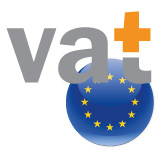EU Tax News
Weaponising VAT in 2018!
Brexit VAT fraud. Austerity restrictions. Arab states panic on VAT. Global tax wars.
Brexit – Are you getting ready for Armageddon?
The impending trading model for post-UK Brexit looks as uncertain as on the date of the 23rd June, 2016 referendum. Certainly, with the membership of the Single Market and Customs Union ruled out, the options are lessening. This won’t begin to become clear until the second half of the year progresses, and the ‘Free Trade Agreement’ talks get going. A 2-year plus transition agreement, or a temporary withdrawal of the Article 50 exit, is likely, which would keep the UK within the EU VAT Directive and ECJ’s reach.
But companies are now starting to plan for Armageddon – a hard Brexit onto WTO rules, as well as the full imposition of import and export VAT on EU trade. This could have stark cash flow effects on companies selling or buying from Europe. We expect the UK Government to be creative in this area, conceivably presenting an import VAT deferment scheme.
Austerity restrictions – Does this mean no new VAT rate rises?
Having exhausted the prospective to raise headline VAT rates in the face of on-going austerity, governments will look at more reduced VAT rises – Romania, Netherlands and Norway have already announced rises for 2018. Switzerland is to cut its standard VAT rate from 8% to 7.7% on the 1st January, 2018. The UK, post-Brexit and free from EU rules on VAT rates, will now be in position to release reduced rates as mentioned in the 2016 referendum.
VAT launched by Arab Gulf with a stutter
The anticipation around the six Gulf States’ 2018 VAT unveiling has been mitigated, as four of the countries look likely to deferral their roll-outs until 2019. In Saudi Arabia and UAE, companies are fluctuating to panic stations as they recognise they are ill prepared for even the basics – such as formulating a compliant VAT invoice.
Tax reporting to be digitised
The move in the direction of live transactions reporting to the tax authorities will remain, but may be alleviated by some overly aspiring launch dates. Norway and Hungary look likely to postpone their respective 2018 SAF-T and live invoice reporting proposals.
Nonetheless, with Brexit impending, the UK may have to postpone again its own plan for live VAT and tax reporting. The ‘Making Tax Digital’ (MTD) programme, which contains transactional reporting on all taxes, has even now been postponed from its 2019 launch. HMRC has only just estimated that Brexit will create up to 40% additional work for it over the next two years – so a delay on MTD is likely.
Digital services being brought into the VAT net
The taxation of digital services to consumers will be the major debate for 2018. The OECD and EU are under pressure to accelerate their own proposals on taxing electronic services provided by large marketplace firms. There may well be conflict between the two, and the EU may well have to back down under US protection of its internet giants.
Fight on VAT fraud escalated by the EU
2018 will be a key test for the European Commission’s far-reaching plans to generate a single VAT area on B2B transactions. This aims to tackle the persistent €50 billion VAT fraud problem. There will be a lot of political pressure from Member States to tone down some of the EC reforms – particularly from Germany. As a result, the target 2022 implementation of a destination-based VAT system will unsurprisingly slip given the EC’s aggressive timetable. But progress heading for a Mini-One-Stop-Shop (MOSS) on EU B2C e-Commerce should see better fortunes.
Huge gains on automation in taxes were promised in 2017. There has been a lot of progress – but it hasn’t come swiftly enough. This is pushing the likes of the EU to accelerate measures on a trans-national level. This will be the theme of VAT and all taxes for 2018 – as well as the fallout from the ‘Paradise Papers’ tax scandal.
What seems to be clear, is that more automation of tax departments is undoubtedly one of the best defences. Notwithstanding the hesitations of Brexit and the like, many companies are actually bringing forward investment in ERPs and tax reporting software, so that they can react in real-time to whatever comes over the barriers next.
International tax reform being pushed by the EU
The European Council (EC) has decided that the European Union (EU) will make available input at an international level on discussions on the taxation of profits in the ‘digital economy’.
According to the EC, action is essential because the ‘digital economy’ is now challenging the arranged models of international tax rules. The EC also said that the existing rules were designed for the traditional economy, and do not apply to activities that require no physical presence in the country where goods and services are sold.
The EC called for close collaboration with the OECD and other international partners. It recommended that the notion of ‘virtual permanent establishment’ should be explored, together with amendments to the rules on transfer pricing and profit attribution.
The OECD is expected to deliver an interim report on the ‘digital economy’ to the G20 in April 2018.
With the growth of the digital economy, we need to rethink our tax rules. We need to take our international taxation rules into the digital age to ensure fair taxation for both digital and non-digital companies. The EU is today taking a leading role in this.
, said Mr Toomas Toniste, the Estonian Minister for Finance.
amavat® provides a one-stop-shop solution for VAT Compliance within Europe. We assist clients with a single point of contact that speaks their language and handles all VAT related issues with a standard and cost efficient approach.
If you have any queries or questions, please do not hesitate to contact amavat®.
To find out more information please visit www.amavat.eu






